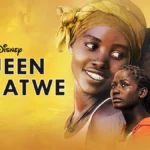In the landscape of entertainment, few companies have undergone as dramatic a transformation as Netflix. What began as a humble DVD rental service has evolved into a global streaming powerhouse, reshaping the way we consume media and revolutionizing the entertainment industry. The story of Netflix’s evolution is a testament to innovation, adaptability, and the power of disruption in an ever-changing digital landscape.
The Early Days: DVD Rentals by Mail
Netflix was founded in 1997 by Reed Hastings and Marc Randolph, with a simple yet revolutionary concept: renting DVDs by mail. At a time when brick-and-mortar video rental stores dominated the market, Netflix offered customers the convenience of ordering DVDs online and having them delivered to their doorstep. By eliminating late fees and offering a vast selection of titles, Netflix quickly gained traction and disrupted the traditional rental model.
The Rise of Streaming: Embracing Digital Technology
As technology advanced and internet speeds improved, Netflix recognized the potential of streaming media over the internet. In 2007, the company launched its streaming service, allowing subscribers to stream movies and TV shows directly to their devices without the need for physical discs. This shift marked a significant turning point for Netflix, as it transitioned from a DVD rental service to a digital streaming platform.
Original Content: A Game-Changer in Entertainment
In addition to licensing content from studios and networks, Netflix began investing heavily in original programming, producing its own original series, films, and documentaries. This move allowed Netflix to differentiate itself from competitors, attract new subscribers, and cultivate a loyal fan base. Iconic shows like “House of Cards,” “Stranger Things,” and “Orange Is the New Black” solidified Netflix’s reputation as a major player in the entertainment industry.
Global Expansion: Conquering International Markets
As demand for streaming services grew around the world, Netflix embarked on a bold strategy of global expansion. By investing in local content, adapting to cultural preferences, and overcoming regulatory hurdles, Netflix successfully launched its service in over 190 countries, reaching millions of subscribers across the globe. Today, Netflix boasts a diverse library of content in multiple languages, making it a truly global entertainment destination.
Innovation and Adaptation: Staying Ahead of the Curve
Throughout its evolution, Netflix has demonstrated a remarkable ability to innovate and adapt to changing market dynamics. From pioneering the concept of binge-watching to implementing personalized recommendations and investing in cutting-edge technology, Netflix has remained at the forefront of the streaming revolution. By continuously pushing the boundaries of what’s possible in entertainment, Netflix has solidified its position as a dominant force in the industry.
The Future of Netflix: Navigating New Frontiers
As the streaming landscape continues to evolve, Netflix faces new challenges and opportunities on the horizon. Competition from rival streaming services, changing consumer preferences, and the rise of new technologies all pose potential threats to Netflix’s dominance. However, with its proven track record of innovation, creative storytelling, and global reach, Netflix remains well-positioned to navigate these challenges and continue shaping the future of entertainment for years to come.
The evolution of Netflix from a DVD rental service to a global streaming giant is a remarkable testament to the power of innovation, adaptability, and disruption in the entertainment industry. By embracing digital technology, investing in original content, expanding globally, and staying ahead of the curve, Netflix has redefined the way we consume media and reshaped the entertainment landscape. As it continues to navigate new frontiers and challenges, Netflix remains a driving force in the ever-changing world of entertainment, inspiring audiences and content creators alike with its boundless creativity and vision.











